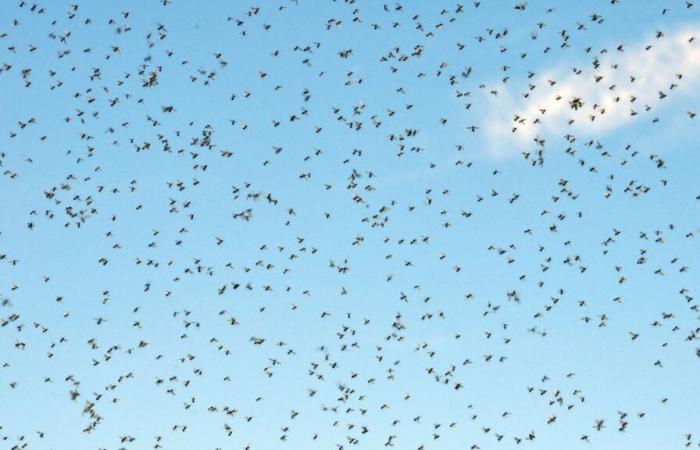The disappearance of mosquitoes is a subject that sparks passionate debate. Often considered pests and vectors of serious diseases, these insects nevertheless play a significant role in ecosystems. This article explores the potential implications of a total eradication of mosquitoes, examining their effects on biodiversity, public health and aquatic ecosystems.
Impact on biodiversity and food chains
The eradication of mosquitoes would cause significant disruption to ecosystems.
- Loss of food for many species : Mosquito larvae are eaten by fish, birds and aquatic predators. Adult mosquitoes serve as prey for species such as bats, frogs and some birds.
- A threat to specialized species : Species like the mosquito fish (Akin to Gambusia), which feeds almost exclusively on mosquito larvae, are at risk of disappearing.
- An impact on pollination : Mosquitoes pollinate many plants, especially at dusk. Their disappearance would affect these natural cycles.
- A risk for migratory birds : In regions like the Arctic, where mosquitoes abound in summer, some populations of migratory birds could drop significantly.
Public health consequences
Eliminating mosquitoes would be seen as a major advance for human health, particularly in areas where they transmit serious diseases.
- Probable disappearance of malaria : This disease, responsible for more than 600,000 deaths per year, could be eradicated.
- Drastic reduction in dengue and Zika epidemics : Transmission of other diseases such as yellow fever and chikungunya would decline sharply, reducing pressure on health systems in tropical countries.
However, this improvement in disease control raises questions about ecological and ethical side effects.
Ecological role of mosquitoes in aquatic environments
Mosquito larvae are not just a food resource. They play an active role in maintaining aquatic ecosystems.
- Natural water filtration : The larvae help clean stagnant water by filtering organic matter and pesticide residues.
- Influence on nutrient cycling : They contribute to the cycle of biomass, carbon and nitrogen, processes essential for the health of aquatic environments.
Their disappearance could unbalance these natural functions, affecting species that indirectly depend on these processes.
Eliminate Tiger Mosquitoes: Natural Secrets You Need to Know
Unintended consequences of eradication
The side effects of killing mosquitoes might be difficult to anticipate.
- Proliferation of other harmful insects : Other species could occupy the ecological niche left vacant, creating new imbalances.
- Alterations in the soil and marsh microbiome : Some mosquito larvae harbor bacteria crucial to the health of marshes and wetland ecosystems.
Ethical considerations and alternative solutions
The idea of eradicating mosquitoes also raises ethical dilemmas and technical challenges.
- Risks associated with eradication methods : The massive use of insecticides could harm other species, notably bees or fish.
- Emerging technologies : More targeted approaches, such as the release of genetically modified or sterile mosquitoes, offer interesting prospects. However, they raise questions about their long-term impacts.
Rather than aiming for total eradication, these methods could focus only on disease-carrying mosquitoes, while preserving non-harmful species.
A disappearance with serious consequences
Although mosquito suppression may seem beneficial to humanity, the ecological consequences would be profound. Interconnected ecosystems rely heavily on their presence, whether as pollinators, food resources or agents in nutrient cycling.
Adopting a measured approach, aimed at targeted control of disease vector species, appears to be a more balanced solution to protect both human health and the environment.
Health
France






